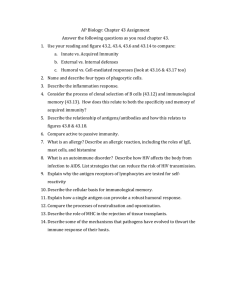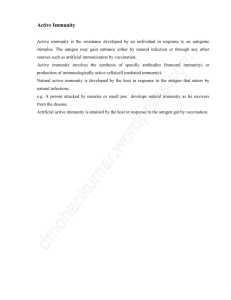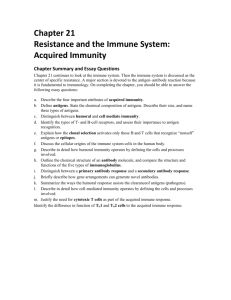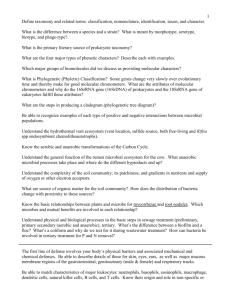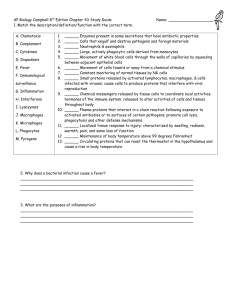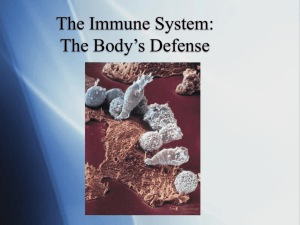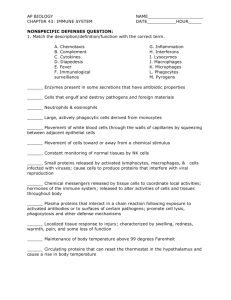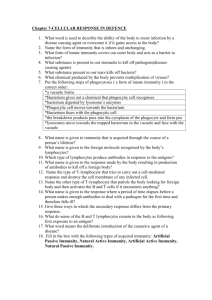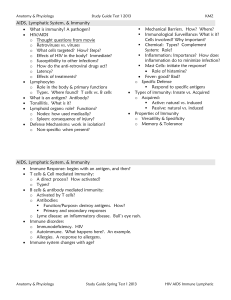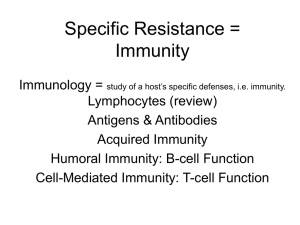BIO 203 Chapter 16 Study guide Compare and contrast innate
advertisement
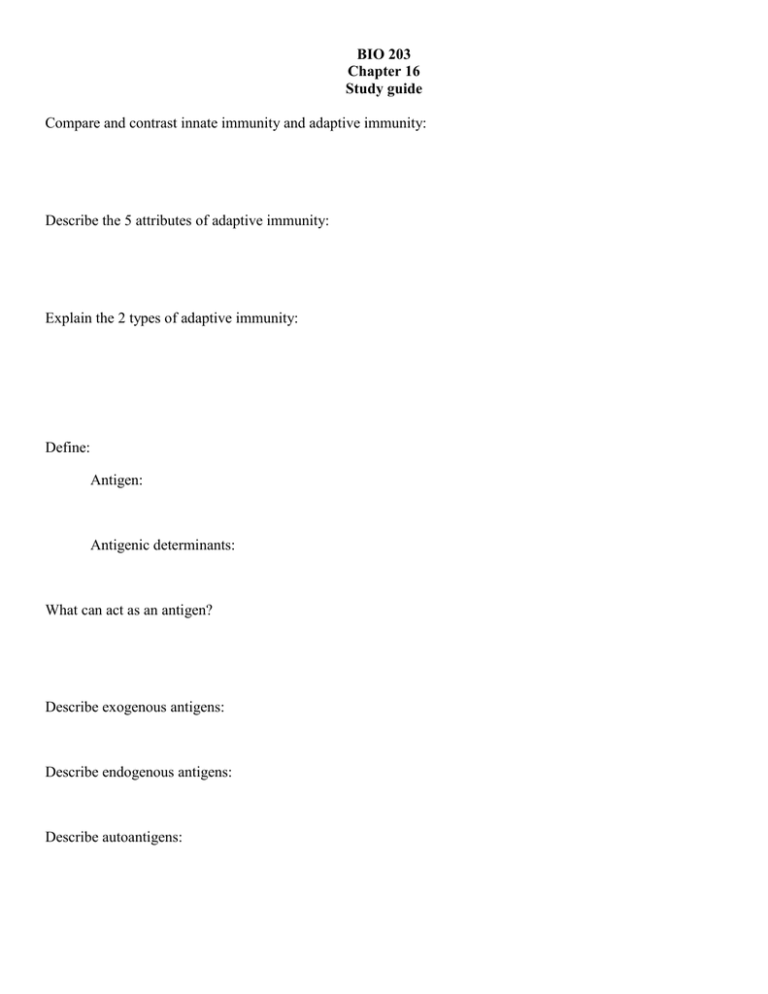
BIO 203 Chapter 16 Study guide Compare and contrast innate immunity and adaptive immunity: Describe the 5 attributes of adaptive immunity: Explain the 2 types of adaptive immunity: Define: Antigen: Antigenic determinants: What can act as an antigen? Describe exogenous antigens: Describe endogenous antigens: Describe autoantigens: Describe B lymphocytes (B cells): What is a BCR? What accounts for the specificity of a humoral immune response? How many BCRs are on a B cell? Are they all different? How many different BCR’s are in a human? How many antigens or epitopes does 1 BCR recognize? How does one B cell specific for one antigen produce enough antibody to protect the entire body? A B cell that differentiates and secretes antibodies is called a _______ ______. What is an antibody? Describe the functions of antibodies: Describe the 5 classes of antibodies: Describe T lymphocytes (T cells) What is a TCR? How is a TCR different from a BCR? (Besides the fact that they are on different cells) Differentiate between the 3 types of T cells: Describe the role of the major histocompatibility complex (MHC): Differentiate between MHC class I and MHC class II proteins: List the types of antigen presenting cells. Then describe what is an antigen presenting cell is and define what do they do? Describe Endogenous antigen processing: Describe exogenous antigen processing: Humoral Immune Response What is the difference between T-dependent humoral immunity and T-independent humoral immunity? Describe the steps in T-independent humoral immunity Describe the steps in T-dependent humoral immunity Cell mediated immune responses Describe the steps in the activation of CTLs: Describe how memory B cells are established and form memory: Describe the following: Naturally acquired active immunity: Naturally acquired passive immunity: Artificially acquired active immunity: Artificially acquired passive immunity:
